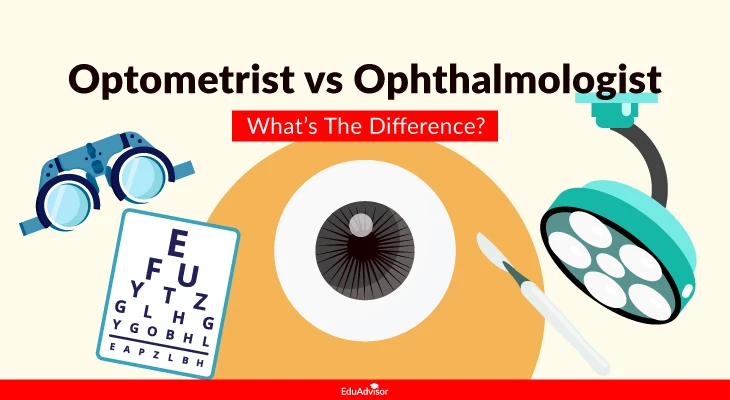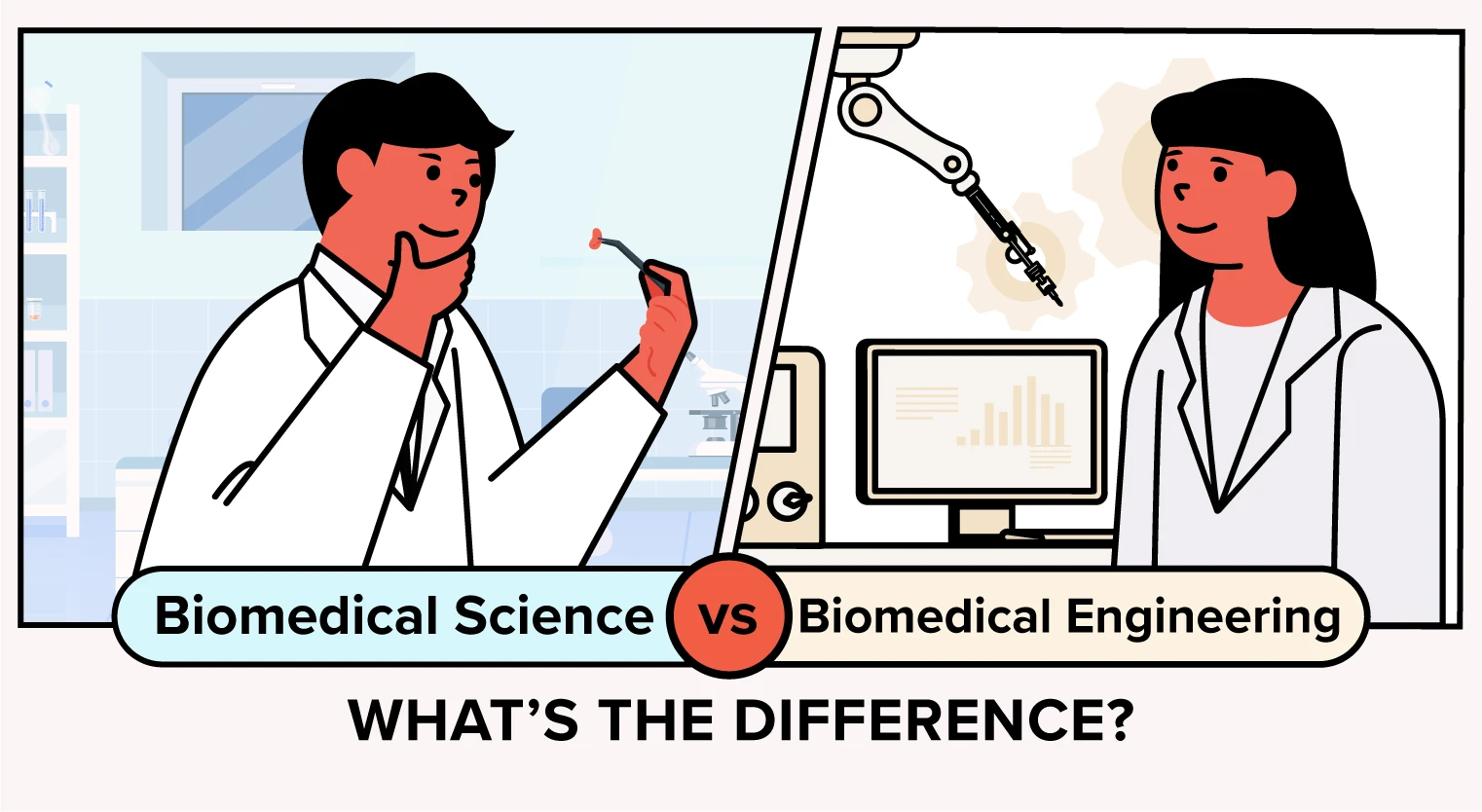Marketing vs Advertising: What's The Difference?
Both marketing and advertising relates to promoting a company’s product and service but what’s the difference? We break it down here.
Updated 17 May 2022
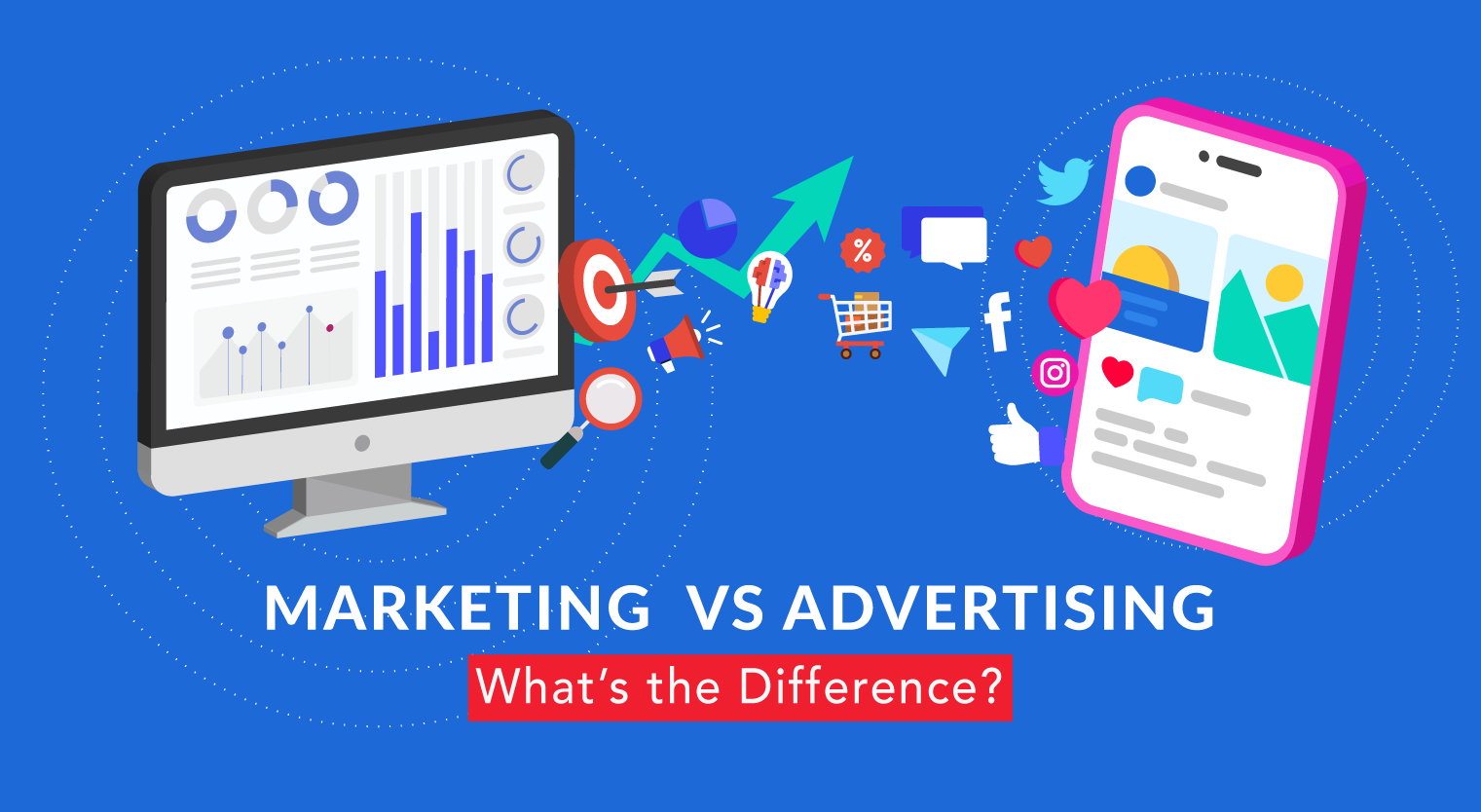
If you’re confused between marketing and advertising, you’re not alone. While they both are about promoting a business’s product or service, the truth is that they actually refer to different things.
Here’s what you need to know about the differences between marketing and advertising.
#1. Marketing asks “who and what to achieve” while advertising focuses on persuading customers to make a purchase
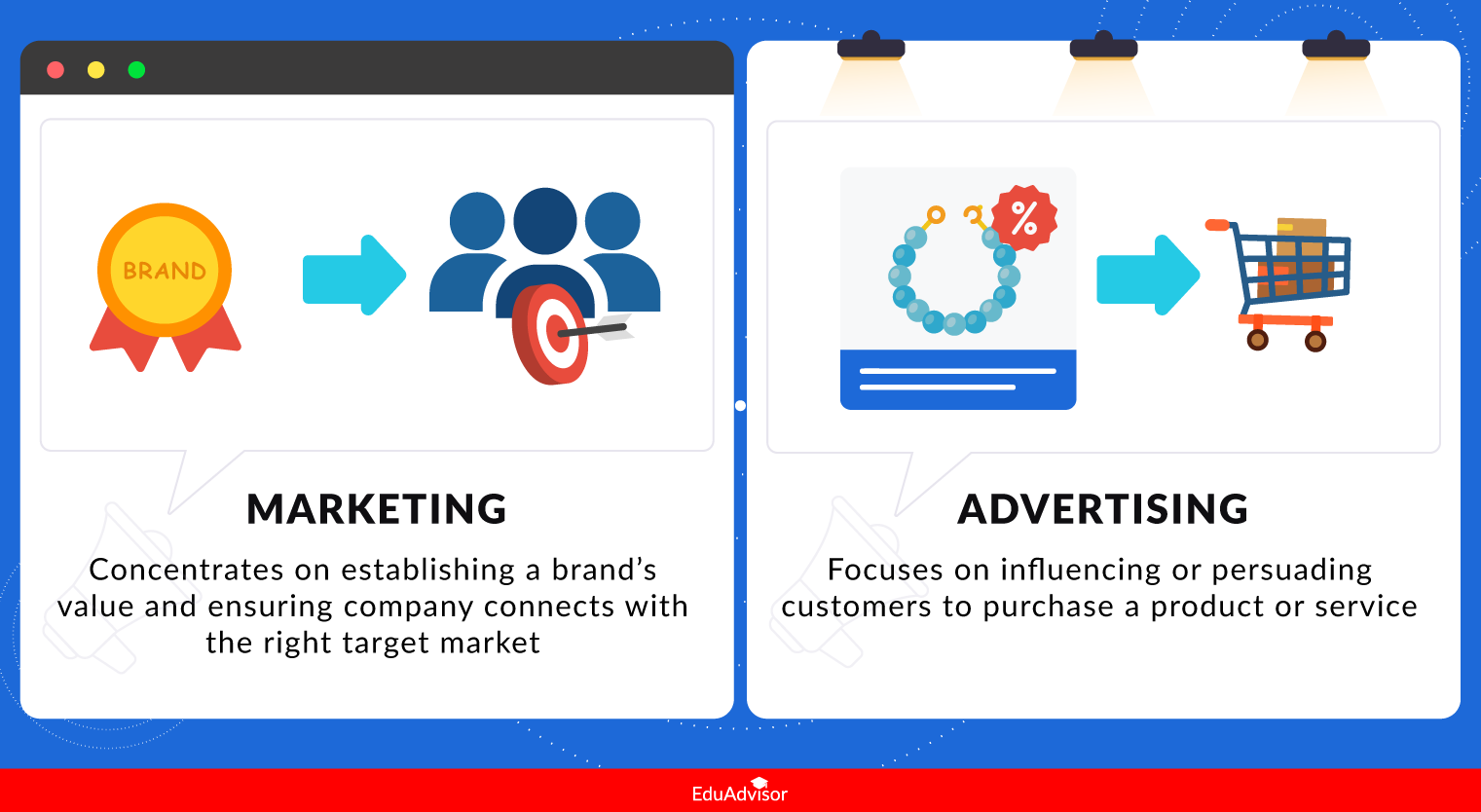
While both marketing and advertising are important and complementary components of an overall promotional strategy, they serve two distinct purposes.
Marketing concentrates on establishing a brand's value and product positioning, ensuring that the company connects with the right target market. Marketing often considers the crucial components of product, price, place and promotion, and aims to build a long-term relationship with customers.
Advertising, on the other hand, is a form of marketing that focuses on influencing consumer buying behaviour, persuading customers to purchase a product or service. This is often done through mass media outlets such as television, radio, print and online ads. Any form of commercial promotion designed to raise awareness about a product or service usually falls under advertising.

#2. Marketing focuses on strategy while advertising is more creative
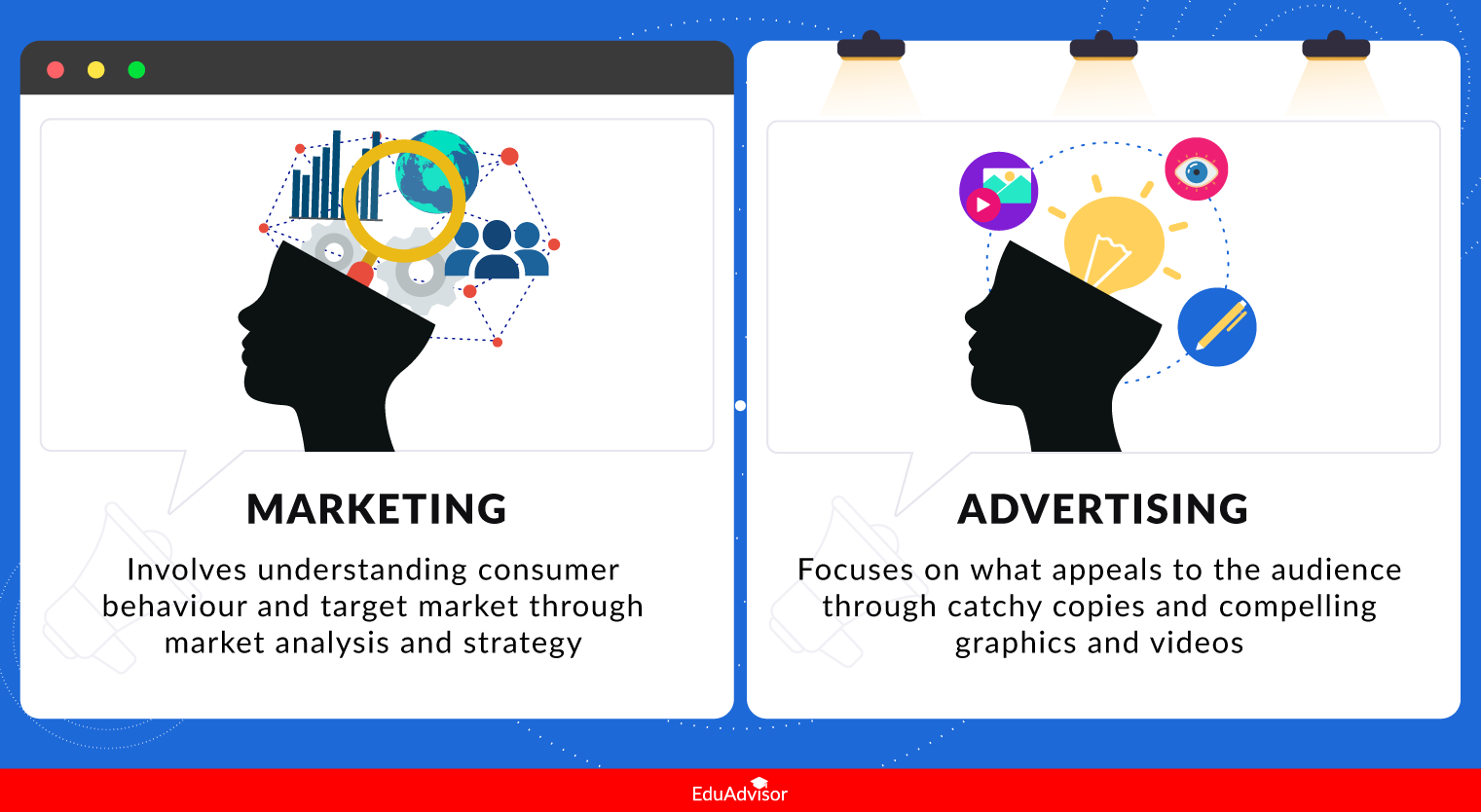
As marketing involves understanding consumer behaviour and choosing the appropriate target audience through market analysis and segmentation, there is a lot of planning and strategy behind it. You’ll need to understand a customer’s buying decision process, craft a pricing strategy and make decisions about your marketing plan.
Moreover, marketing also controls the mix of promotion and marketing methods, which are plentiful, especially in this digital age. Whether it’s paid advertising, social media marketing or relationship marketing, the field requires systematic planning to ensure business goals are met.
Conversely, advertising leans heavier on the creative side. You can’t just shove things into ads; you’ll need to understand what appeals to your target audience. Creative advertising such as catchy and witty copy, compelling videos and eye-catching infographics all come into play. This calls for skills such as graphic design, art directing and copywriting to keep the vision on track.
#3. Marketing is under the business field of study while advertising is under mass communication
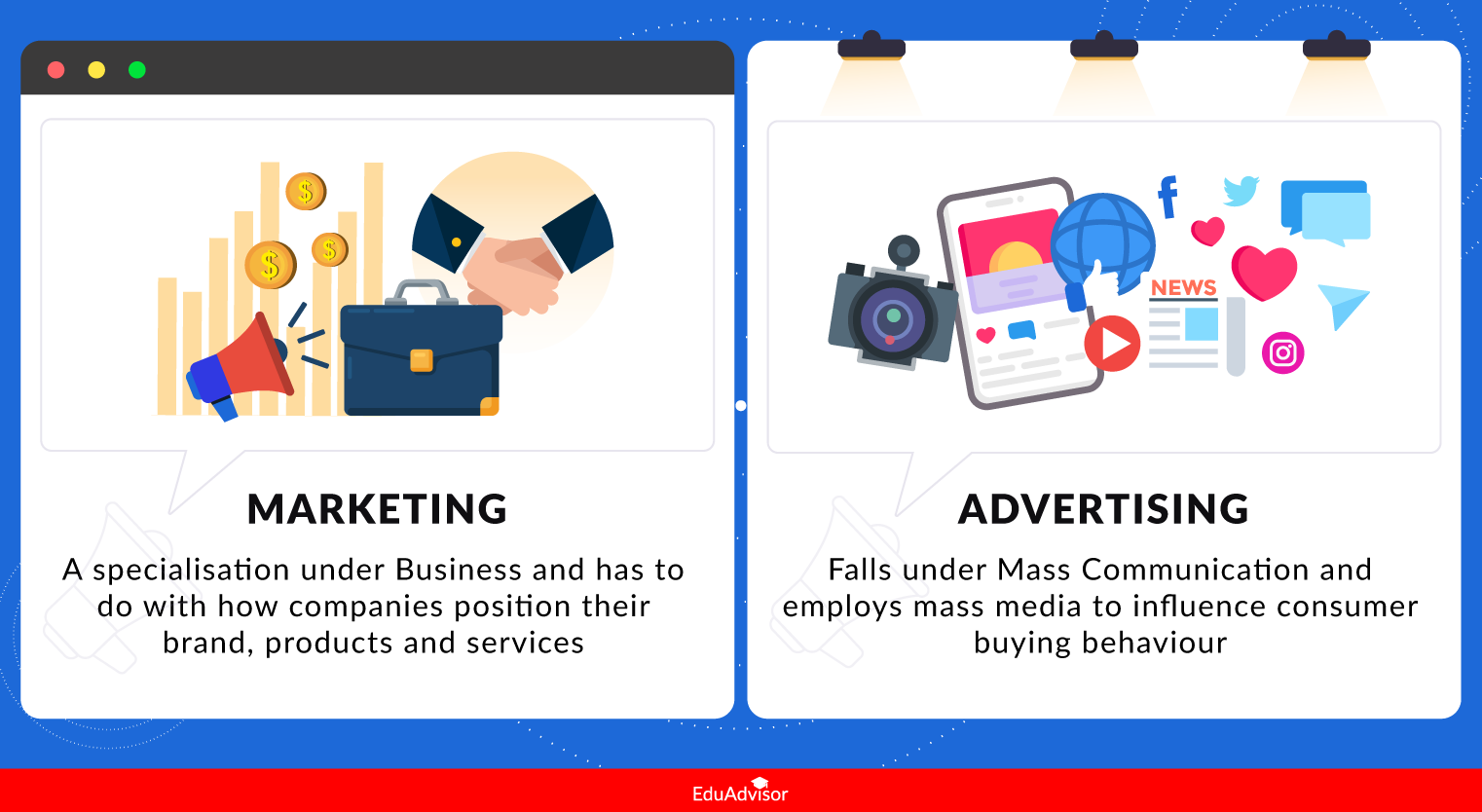
Marketing and advertising may both be about promoting products and services, but as a field of study, they’re both under different areas.
Universities generally offer marketing as a specialisation under a business degree. Because marketing has to do with how companies position their brand, products and services, you’ll often need to understand other complementary business concepts in order to be a successful marketer.
On the other hand, advertising falls under the mass communication field of study. This is because advertising often employs the use of mass media to influence consumer buying behaviour. Therefore, the skills that you learn in a mass communication degree such as copywriting and design will be useful in your advertising career.
Apply for university with EduAdvisor
Secure scholarships and more when you apply to any of our 100+ partner universities.
Start now#4. Both fields cover different subject material
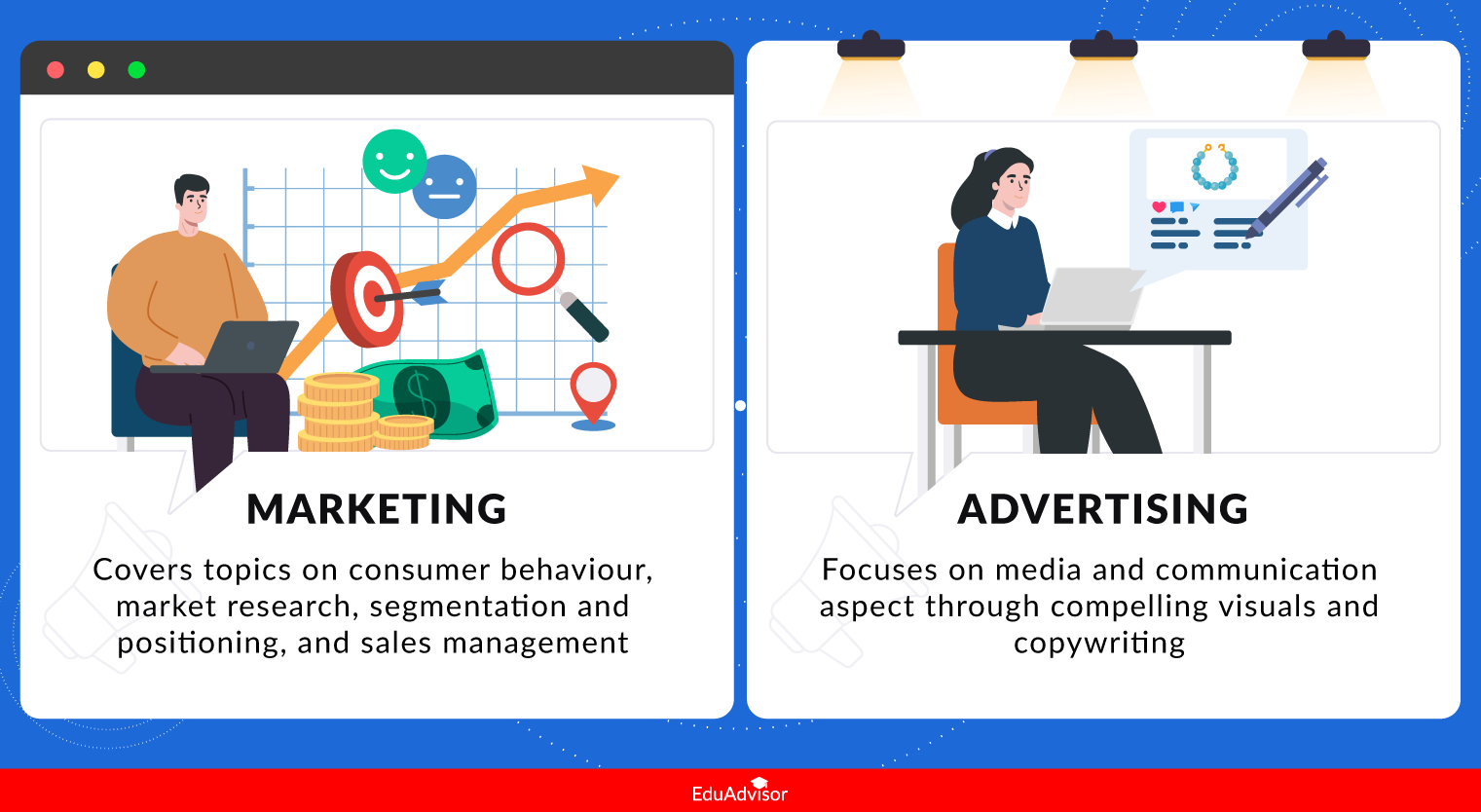
Since marketing is a field of study under business, you will need to study common business modules such as accounting and finance, economics, business analytics and human resource management. In addition, you’ll also be covering modules that are specific to marketing. Such topics include consumer behaviour, market research, segmentation and positioning, and sales management.
On the other hand, advertising, being a subset of mass communication, will have you focusing on the media and communication aspect. You will learn how to persuade customers and sell products and services through compelling visual communication and copywriting. By the end of your advertising degree, you’ll have a good understanding of media and communication laws and be able to successfully plan and execute advertising campaigns.

#5. Both present different career prospects
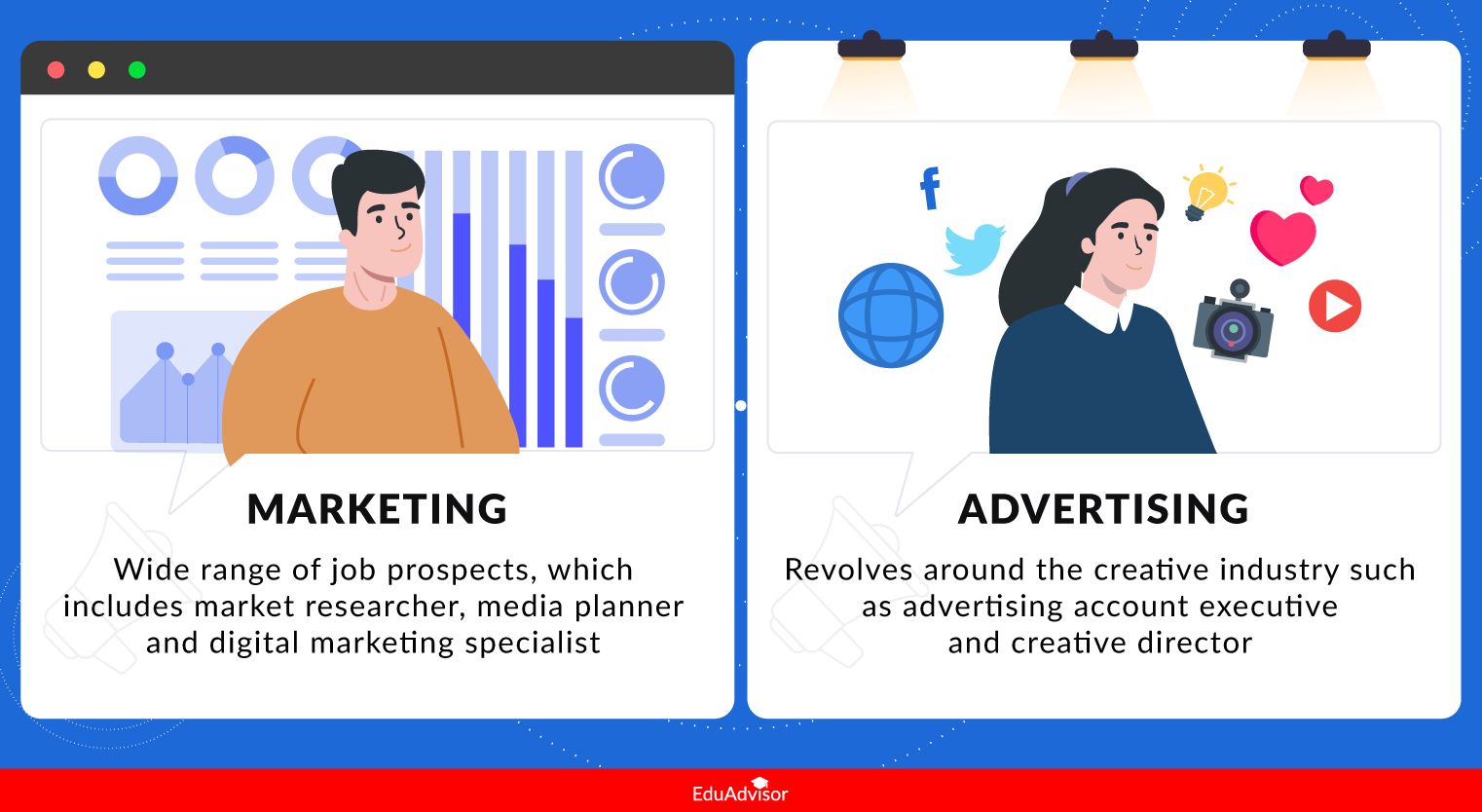
If you consider yourself a strategist and have good analytical skills, you’ll want to pursue marketing. You can pursue a wide range of jobs such as market researcher, media planner, product manager, digital marketing specialist and sales promotion executive. Nearly every business needs marketing professionals so you’re in good stead whichever area you choose.
Advertising, on the other hand, will open up jobs in the creative and communication world. Career options include advertising account executive, advertising account planner, advertising copywriter and creative director.
It’s important to remember that your options are not limited by which programme you choose to study. Marketing and advertising overlap each other and you can easily jump from one job to another. Picking a field helps narrow down your choices but it doesn’t cut you off from other opportunities completely.





